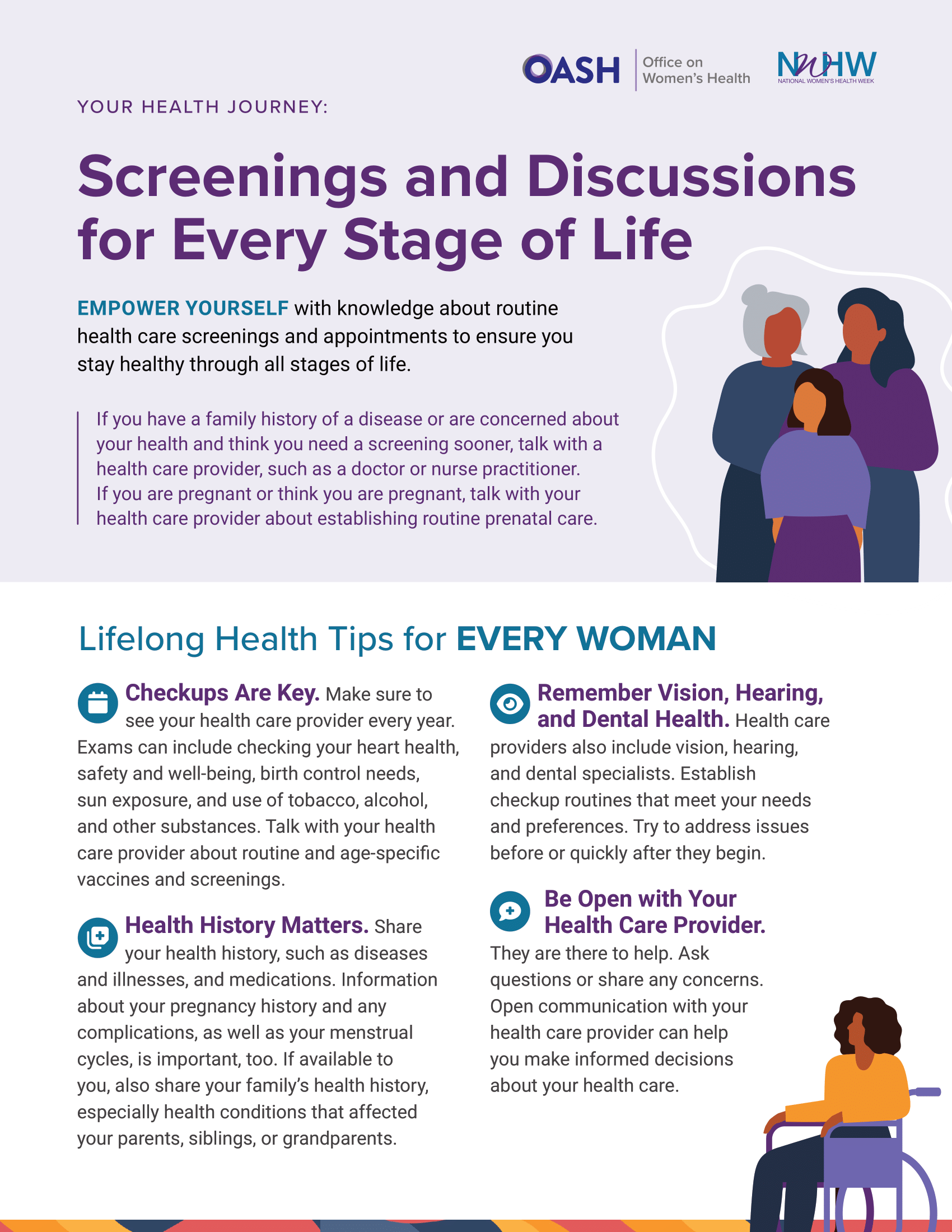Women's Preventative Health: Essential Screenings & Checkups For Every Stage of Life
Did you know that taking charge of your health can be as simple as scheduling regular check-ups? It's easy to get caught up in the whirlwind of daily life, but ensuring we prioritize our well-being is key to living our best lives. Let’s dive into the world of preventative care and explore the essential screenings and check-ups every woman should be aware of. So, grab a cup of tea and let's embark on this journey to better health together!
Preventative Care
Before we delve into the specifics, let's understand what preventative care truly means. Preventative care involves proactively seeking medical attention to catch potential health issues early, before they escalate into more serious problems. This means staying on top of regular screenings and check-ups, as they play a crucial role in maintaining overall health.
Early detection is the cornerstone of preventative care. By identifying health issues in their initial stages, we can take proactive steps to manage or even prevent them altogether. From cervical cancer to heart disease, regular screenings can make all the difference in our health outcomes.
Women’s Preventative Health Screenings
Now, let's get down to brass tacks – the screenings and check-ups every woman should prioritize. Below is a great resource from the Office on Women’s Health that breaks down essential health screenings for women and discussions you should have with your healthcare provider, for every stage of life.
In addition to this list, you should also discuss blood pressure checks with your healthcare provider to help keep tabs on your cardiovascular health. You can also take control of checking your blood pressure by purchasing a blood pressure cuff to use at home, or by using a blood pressure monitor at your local pharmacy.
Remember, scheduling these screenings and check-ups is just the first step. Be proactive in preparing for appointments, and don't hesitate to discuss any concerns or questions with your healthcare provider.
Preparing For Your Appointment
Stay Open.
Discussing intimate topics like periods, pee, sweat, or vaginal health with your healthcare provider (HCP) can feel awkward, but it's essential for your well-being. Remember, your HCP is there to help, and honest conversations lead to better care. If you feel uneasy, practicing beforehand can make it easier to communicate your concerns.
Take Notes.
Jot down any symptoms, worries, or changes you've noticed in your body. This includes both physical and mental health issues. Creating a list of questions for your HCP ensures you cover everything during your appointment. Don't forget to include any medications or supplements you're taking. Keeping organized notes helps you make the most of your time with your HCP.
Know Your History.
Your health story is valuable. Share details about your health journey, including past illnesses, pregnancies, and mental health experiences. If possible, gather information about your family's health history too. This information gives your HCP insight into your health risks and helps tailor your care plan.
Bring Support.
Feeling nervous? Ask a trusted friend or family member to join you. They can offer moral support, help you remember questions, and take notes during your appointment. If you'd like privacy at any point, they can step out of the room. Your comfort is a priority.
Honest Is Key.
If past healthcare experiences have left you feeling uneasy, it's okay to speak up. Share your concerns with your HCP—they're there to listen and support you. Together, you can work towards a positive and successful visit. Remember, your health matters and your voice deserves to be heard.
As we wrap up our journey through the world of preventative care, we urge you to take action. We understand that accessing healthcare can sometimes be challenging, whether due to cost, fear, or lack of awareness. But remember, your health is worth it. By taking small steps towards lifelong preventative care, you're not only investing in yourself through proactive health strategies, but also setting a positive example for those around you.
Schedule those screenings, book those check-ups, and prioritize your health like never before. By taking proactive steps today, you're paving the way for a healthier, happier tomorrow. So, here's to you – may you continue to shine bright and thrive in every aspect of your life!
Resources








